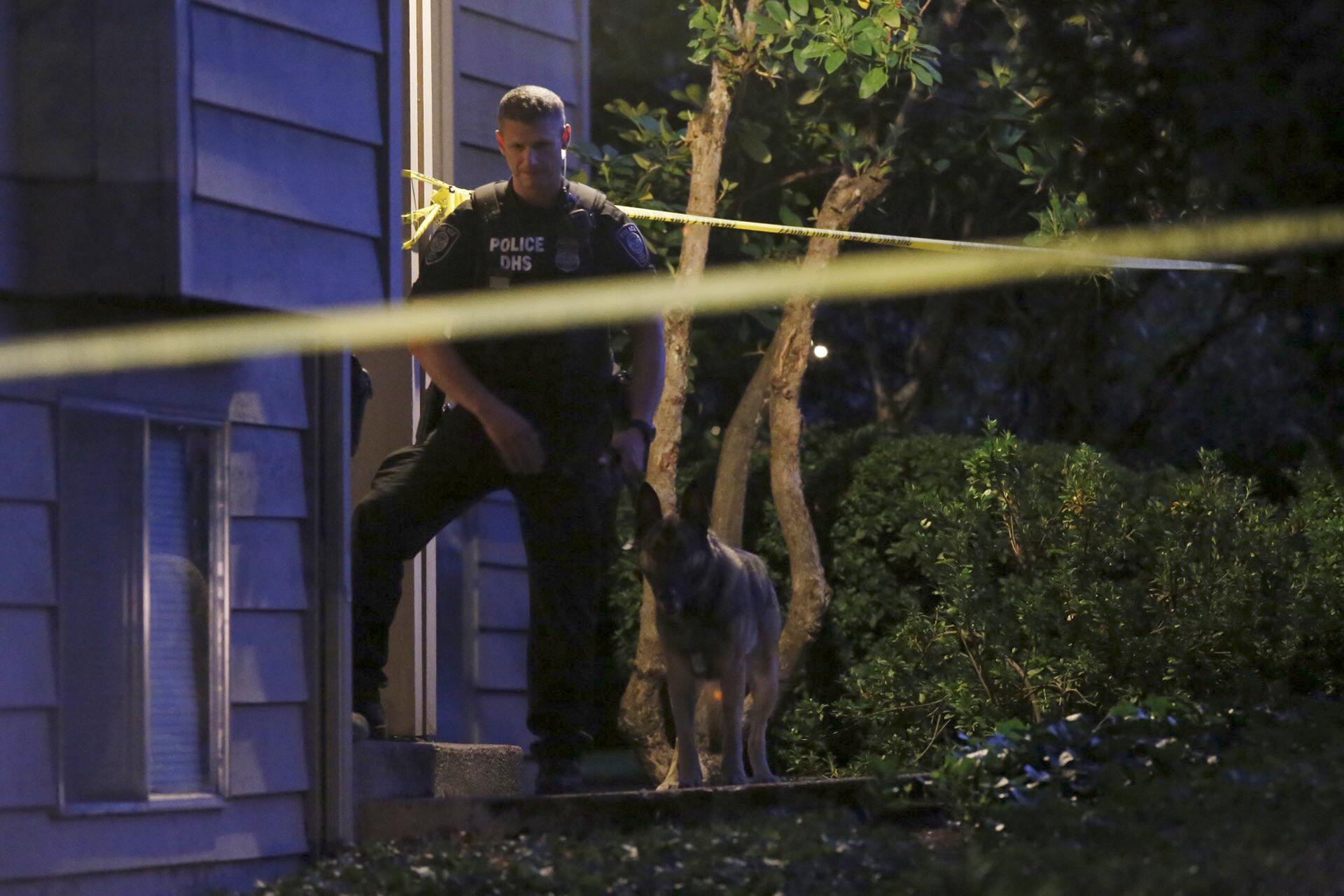A DHS police investigator is seen with a canine at residential location following a mass shooting at Umpqua Community College in Roseburg, Oregon October 1, 2015.
Most of our reporting comes from a team of reporters and producers in the US.
We often find ourselves describing the violence that's happening somewhere else on the globe. Or we report on countries that we describe as much more dangerous than our own.
But today we find ourselves covering the aftermath of yet another mass shooting here in the US: at a community college in Oregon. Ten people dead — including the gunman. And so many familiar questions about warning signs and the availability of guns.
For some perspective on this we might want to look at one of those countries we often describe as "violent" and "dangerous."
Mexico.
Many in that country think we in the US are just a little hypocritical.
"They accuse us of being a violent little country, but look at them," says Alfredo Corchado, Mexican bureau chief for the Dallas Morning News. "This is just one more mass shooting by a lone gunmen."
Corchado says the frequency of school shootings in the US does not happen in Mexico. "Here, you hear about the mass shootings of immigrants targeted by organized crime, or kids at a party in Ciudad Juarez who had the wrong information and targeted the wrong house. But nothing like a Sandy Hook or in this case, Oregon."
Guns are extremely difficult to get legally in Mexico. Corchado says they require strict background checks that include mental health checks. "Mexico has one of the tightest gun control laws anywhere," he says. "But like a lot of laws in Mexico, it's meant to be broken or it's meant to be ignored."
So you get guns illegally in the country. He says many of the those guns come from the US. But prospects for any change to US gun policy are slim.
President Barack Obama spoke on Thursday about the shooting:
"We know that other countries in response to one mass shooting have been able to craft laws that almost eliminate mass shootings. Friends of ours, allies of ours — Great Britain, Australia — countries like ours. So we know there are ways to prevent it.”
Sam Bieler studies gun violence at the at the Urban Institute's Justice Policy Center in Washington.
“In both of those countries what you see is that there is a really strict control passed in the wake of a particularly prominent shooting," he says. "That was the Port Arthur massacre in Australia, where you had 35 people shot — and the Dunblane primary school massacre in Scotland, where you had 17 people shot. In both of those cases what you end up seeing is an incredibly restrictive firearms regime passed where you effectively outlaw private ownership of handguns and you make it incredibly restrictive to possess things like rifles or shotguns.”
He says that that the mass shooting at the Sandy Hook Elementary School in Newtown, Connecticut, in 2012 provoked debate in the US over gun control legislation.
“When it became particularly shocking for people, was after Newtown where you had 20 children and six adults shot. And I think people really expected that this might be the impetus for a larger national reform effort.”
So far, it hasn't.
